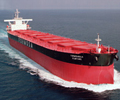Russian Urals oil price falls to $62.99/bbl in 2023, near the price cap

The price of Russian Urals oil blend fell to $62.99 per barrel in 2023 from $76.09 in 2022, Russia’s finance ministry said on Tuesday, around the Western-imposed cap of $60, while the oil is currently trading below that threshold, Reuters’ data showed.
The ministry also said the average price of Urals oil blend had risen to $64.23 per barrel as of December 2023 from $50.47 a year earlier.
The Russian economy relies heavily on the sales of commodities, especially oil and natural gas.
The European Union, G7 countries and Australia introduced the price cap of $60 per barrel on Russian oil in December 2022, aiming to curb Russia’s ability to finance its military operations in Ukraine.
The U.S. Treasury guidance states that the cap is placed on free on board (FOB) prices, which do not include the cost of insurance and shipping. That is the price the crude would be sold at if a buyer loaded it directly from a Russian terminal.
According to Reuters’ data, Urals FOB spot prices in the Black Sea’s Novorossiisk port URL-NVRSK and the Baltic port of Primorsk URL-PRMSK have edged down below the cap since the turn of the year, trading at around $55-56 per barrel.
OIL EXPORTS
Russia, the world’s second largest oil exporter after Saudi Arabia, was forced to cut exports of oil and oil products immediately after the price cap was introduced as it struggled to find enough ships to transport all of its output.
But it then managed to place most of its exports with domestic or non-Western foreign shippers, which do not require Western insurance coverage.
Still, Russian oil traditionally sells at a discount to international benchmarks such as Brent. The discount has widened following Western sanctions imposed over the Ukraine conflict, reaching around $30 per barrel at its peak in early 2023.
The ministry said on Tuesday that Brent prices averaged $77.88 per barrel in December, meaning the discount stood at $13.65 per barrel last month, up from $10.3 in November and $9.6 in October.
Russian oil priced below the cap level may attract more Western shippers and buyers to the market, traders said, as dealing with energy supplied by Moscow is still a profitable business.
If Russian oil is priced below the cap of $60 per barrel, Western companies can provide shipping and insurance services for its suppliers.
“The Russian oil market is big. When it’s legal, below the cap, Western companies have no problem taking part in it,” a trader involved in Russian oil sales said.
He added that during the winter season, when Russian needs ice-class vessels to operate in the Baltic, the oil trade is facilitated by more shipping companies offering services.
Russian Deputy Prime Minister Alexander Novak said last month that almost all of Russia’s oil exports this year have been shipped to China and India.
He also said that Europe’s share of Russia’s crude exports has fallen to only about 4-5% from about 40-45%.
Though oil and products flows from Russia continue, overall costs have risen many times for Russian exporters due to the Western sanctions, traders said.
The main challenges facing Russian oil exporters in 2024 are logistics, money transfers and rising risks of new sanctions, they said.
Source: Reuters (Reporting by Darya Korsunskaya and Olga Yagova; writing by Vladimir Soldatkin and Felix Light Editing by Gareth Jones and Louise Heavens)

 Hellenic Shipping News Worldwide Hellenic Shipping News Worldwide, Online Daily Newspaper on Hellenic and International Shipping
Hellenic Shipping News Worldwide Hellenic Shipping News Worldwide, Online Daily Newspaper on Hellenic and International Shipping





















 PG-Software
PG-Software